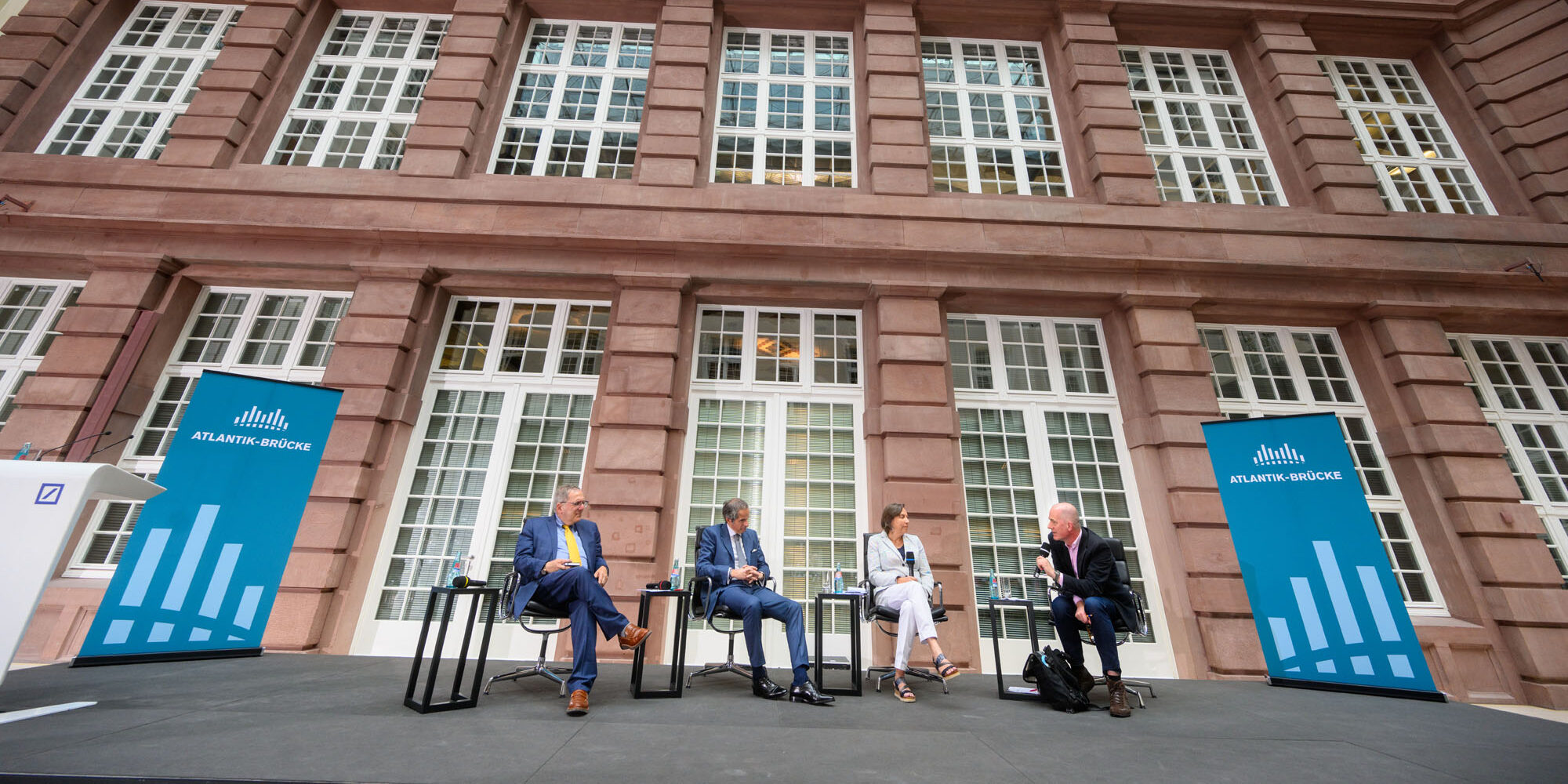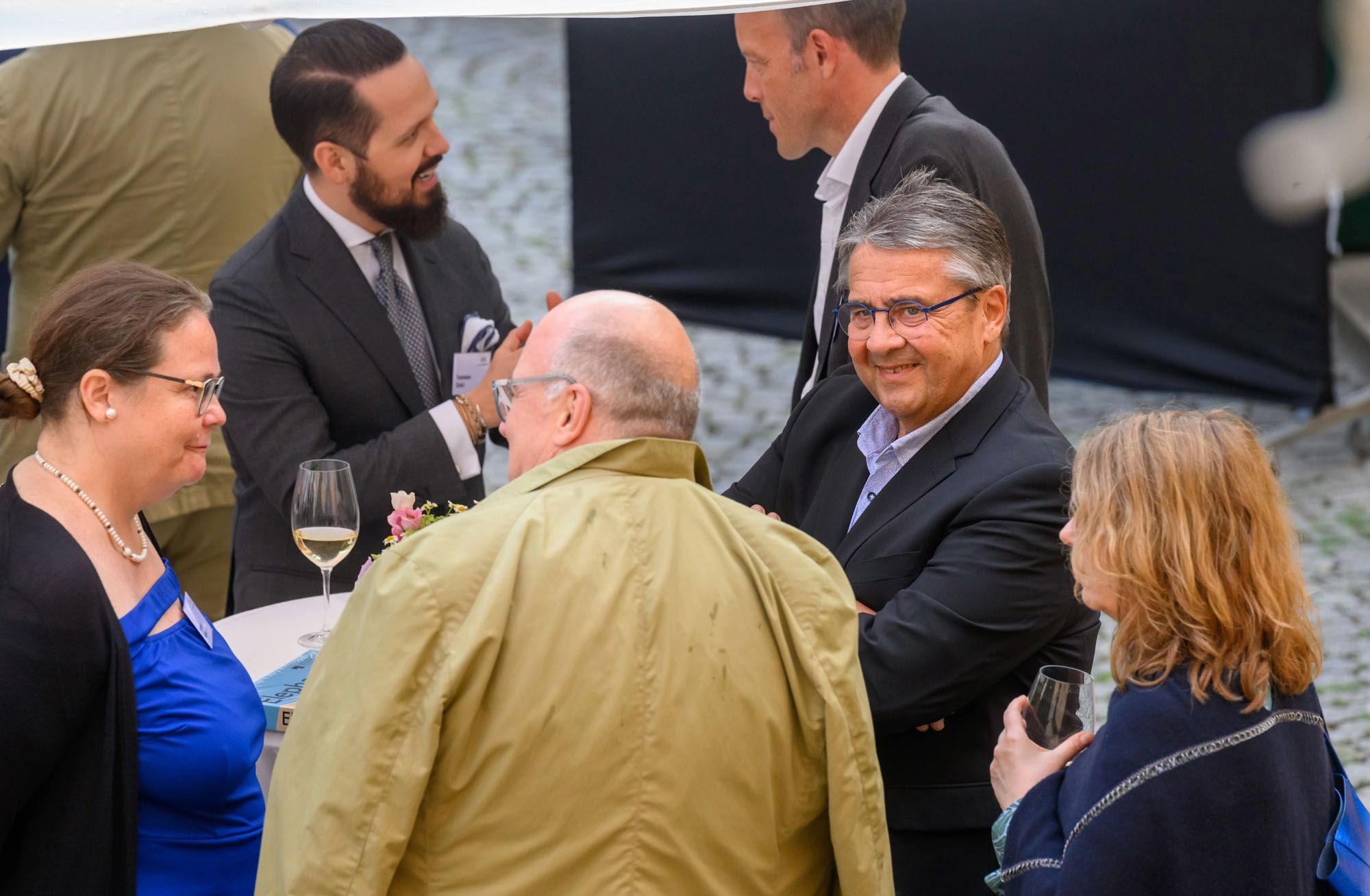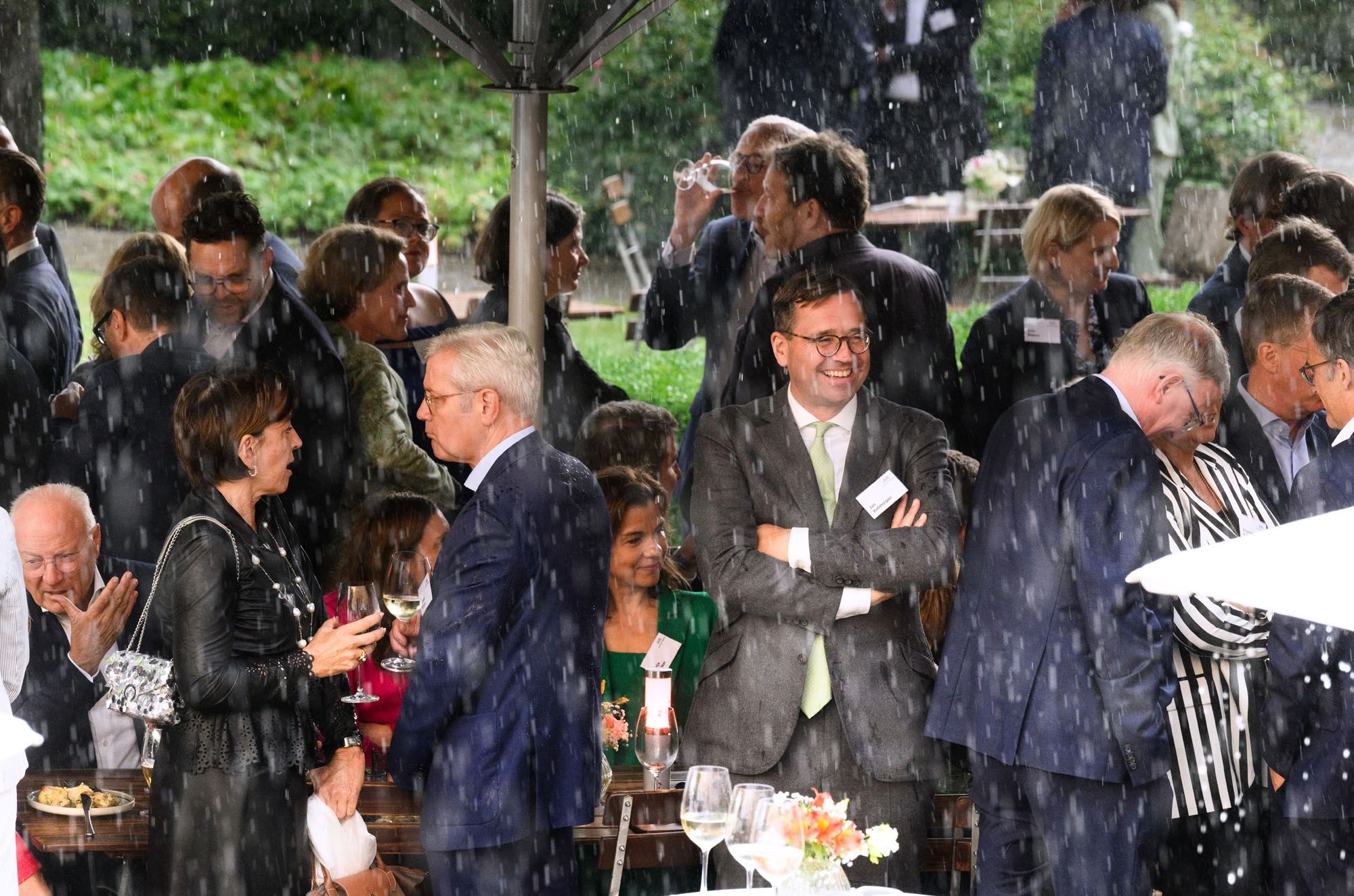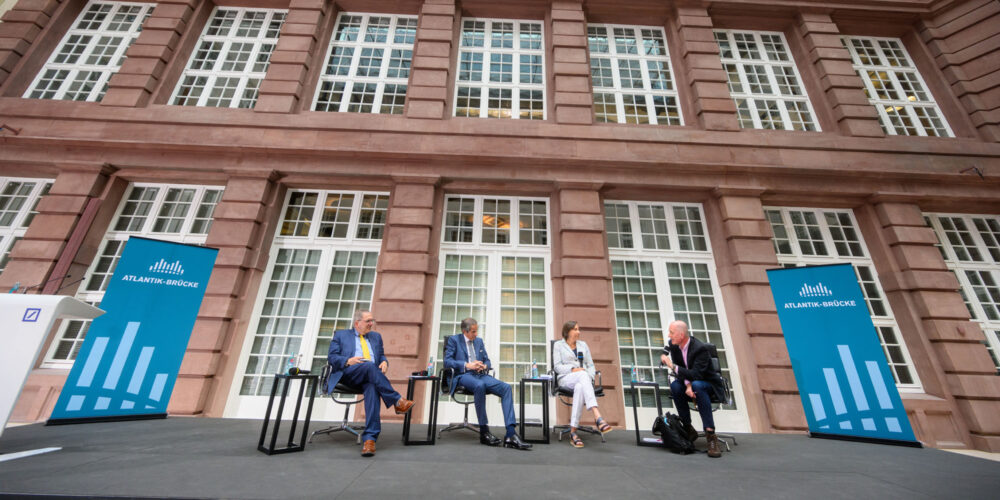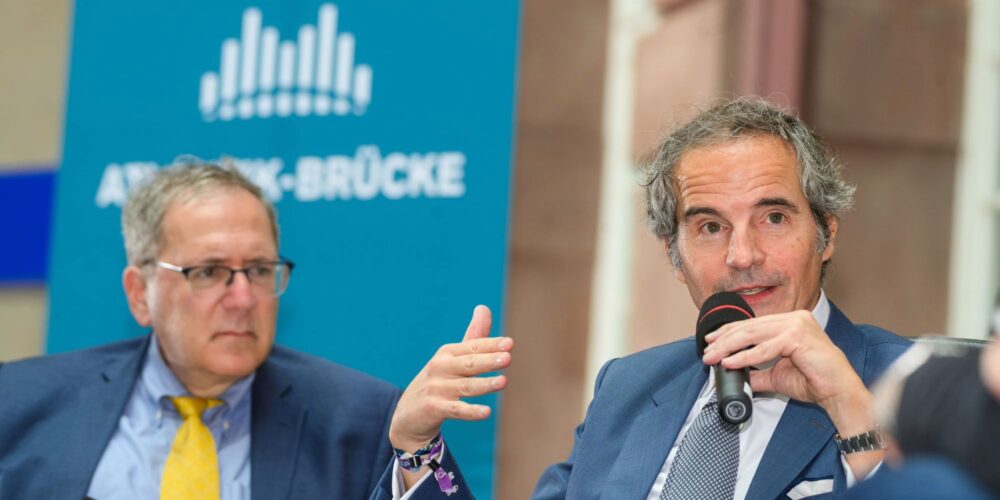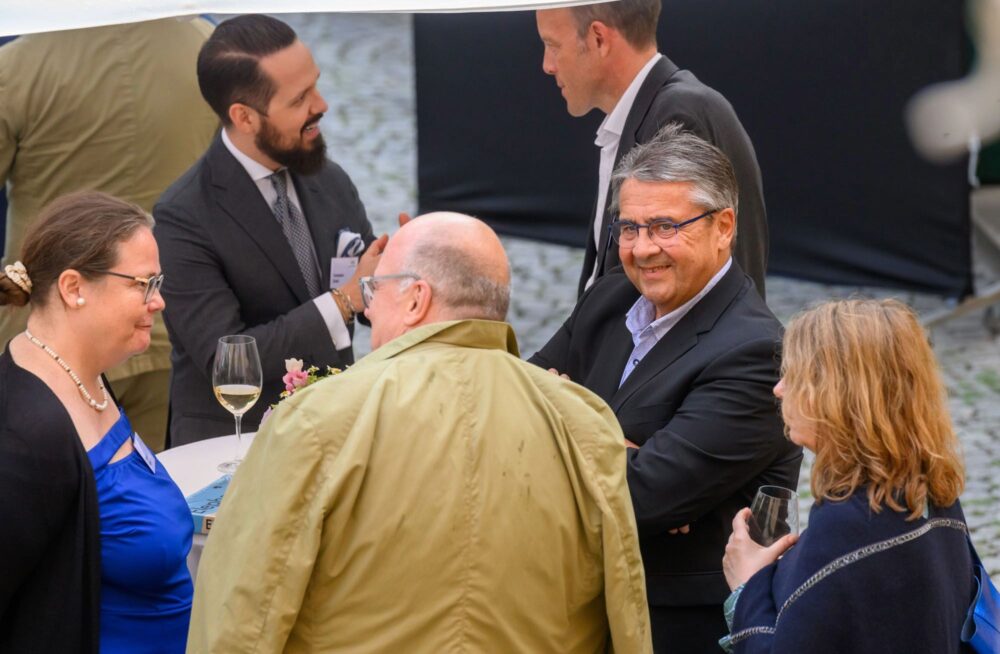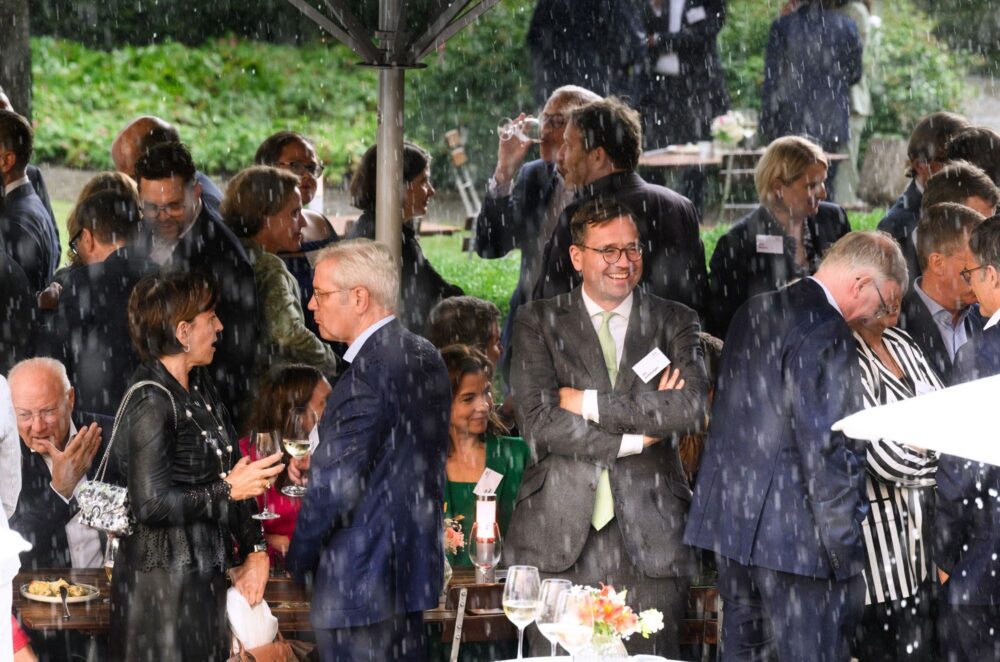The challenges of our global security
At this year’s Members Meeting’s panel discussion “China, Russia, the Tech Race, and Western Resilience,” several experts shared their insights on the critical geopolitical landscape and its impact on global security. The panel included David E. Sanger, White House and national security correspondent for The New York Times and author of “New Cold Wars”, Rafael Mariano Grossi, Director General of the International Atomic Energy Agency (IAEA), and Beth Sanner, Senior Fellow at the Intelligence Project, Belfer Center for Science and International Affairs, Harvard Kennedy School. The discussion was moderated by Christian Mölling of the Deutsche Gesellschaft für Auswärtige Politik e.V.
The experts highlighted the pressing geopolitical issues that significantly influence our interests, particularly in terms of security. The ongoing conflict in Ukraine, nuclear nonproliferation efforts in the Middle East, and tensions with North Korea were discussed, with an emphasis on the IAEA’s critical role in ensuring stability in these regions.
A major threat highlighted was Iran’s power in the Red Sea, especially after the Iranian attack on Israel, which escalates the risk of further conflict in the Middle East. This escalation poses a serious threat to global security. Panelist David E. Sanger emphasized that the threat from Iran should not be underestimated and stressed the importance of avoiding past mistakes in dealing with Russia. He referred to the mistakes Europe has made with Russia and pointed out several critical points. There were warning signs as early as 2007, when Putin talked about the territory he wanted to invade, but no one took his statements seriously. Even in 2014, Germany continued to trade with Russia. Just before the invasion of Ukraine, most people did not believe it would happen. Our perception has changed since then, and we must learn from this experience to avoid making the same mistakes with Iran or China, Sanger argued.
They also discussed the options available to Germany, and Berlin in particular, to rebuild the basic consensus in the international community. An understandable reaction in Europe and Washington is the desire to avoid a Cold War. However, it is crucial to consider how this desire is perceived by adversaries. The panelists noted that while it is essential to avoid a new Cold War, we must also plan for the possibility of failure in ways we have not done before. The message should be clear that accommodation is not an option, and we must be prepared to meet these challenges head on. The panel explored the potential use of nuclear weapons in conflicts between nuclear-armed and non-nuclear-armed states
Beth Sanner remarked, “all the assumptions we had about how the world works have been destroyed,” prompting the audience to question whether our current assumptions about global dynamics still hold true.
The Role of China
Understanding China’s intentions and actions is a critical issue. Contrary to the common belief that China is primarily concerned with economic interests, its strategy includes significant geopolitical considerations. China is making strategic moves and has clear interests in regional and global expansion. The interconnectedness of global threats was emphasized. Japanese Prime Minister Kishida significantly increased the defense spending of his country not only because of Russia’s invasion of Ukraine, but also because of China’s actions in circumnavigating the island of Japan and standing on Russia’s side in the war against Ukraine. In particular, the Kuril Islands dispute between Japan and Russia has prompted Japan to take a clear stance on the conflict.
The Iran Nuclear Deal
The discussion also touched on the Joint Comprehensive Plan of Action (JCPOA) and the challenges surrounding Iran’s nuclear program. Despite the initial compliance and economic benefits, the deal has faced significant setbacks, especially after the U.S. withdrawal in 2018 and Iran’s subsequent violations. Since then Iran has acquired dangerous characteristics and developed nuclear power. Panelist Rafael Mariano Grossi urges that efforts should be made to revive the JCPOA through diplomatic negotiations or a new type of agreement to ensure regional and global security. Efforts should be made to rebuild a basic international consensus to ensure global security.
The New Power Structure and Western Resilience
Another point of discussion was the emerging power structure, characterized by a coalition of interests between Russia, China, Iran, and North Korea, which seeks to establish an alternative system to that led by the United States and its European allies. This requires a strategic response from the West to maintain stability and security. The role of Artificial Intelligence and strategic weapons in this new geopolitical landscape was also addressed, with insights into the Pentagon’s plans to increase the number of strategic weapons and the implications of these developments.
Strengthening European Defense
The need for a stronger European defense industry was underlined, with calls for joint efforts to protect national interests and reduce dependence on American weapons. Beth Sanner explained the ambivalent position of the US. On the one hand, they want a stronger European defense industry, but on the other hand, they benefit from Europe’s dependence on US weapons. Nevertheless, it is important to strengthen the transatlantic relationship between the US and the European Union. In conclusion, the panelists stressed the importance of re-evaluating existing assumptions, understanding the interconnected nature of global threats, and developing comprehensive strategies to address these challenges. In closing, Beth Sanner advised, “Europe has a great story to tell, just believe in your own story.”

